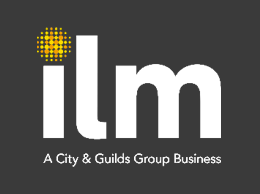Wikipedia define a high-performance team as a group of people with specific roles and complementary talents and skills, aligned with and committed to a common purpose, who consistently show high levels of collaboration and innovation, produce superior results, and extinguish radical or extreme opinions that could be damaging. The high-performance team is regarded as tight-knit, focused on their goal and have supportive processes that will enable any team member to surmount any barriers in achieving the team’s goals.
This is a very simple but strong definition about team culture that many businesses are striving to instil in their workplace. Sometimes in the learning and development world we can over complicate or have a tendency to be constantly looking for new techniques and new ways of working when some of the simple things done well can provide the most powerful results.
I’m not saying we shouldn’t use tools and models to help us on this journey for example, Tuckman’s stages of group development, the application of Belbin and the use of MBTI or Insights profiling tools will provide invaluable knowledge and insight about self and others.
Different characteristics are used to describe high-performance teams, however if you can truly commit to the some or all of the key characteristics below it will naturally lead to success.
- Participative leadership – using a democratic leadership style that involves and engages team members
- Effective decision-making – using a blend of rational and intuitive decision making methods, depending on that nature of the decision task
- Open and clear communication – ensuring that the team mutually constructs shared meaning, using effective communication methods and channels
- Valued diversity – valuing a diversity of experience and background in team, contributing to a diversity of viewpoints, leading to better decision making and solutions
- Mutual trust – trusting in other team members and trusting in the team as an entity
- Managing conflict – dealing with conflict openly and transparently and not allowing grudges to build up and destroy team morale
- Clear goals – goals that are developed using SMART criteria; also each goal must have personal meaning and resonance for each team member, building commitment and engagement
- Defined roles and responsibilities – each team member understands what they must do (and what they must not do) to demonstrate their commitment to the team and to support team success
- Coordinative relationship – the bonds between the team members allow them to seamlessly coordinate their work to achieve both efficiency and effectiveness
- Positive atmosphere – an overall team culture that is open, transparent, positive, future-focused and able to deliver success
Futureproof specialise in team and people development that is focused on creating an inclusive, effective and enjoyable working environment.
If you want to know more please get in touch 01623 409824 or email info@futureproof-training.co.uk.






